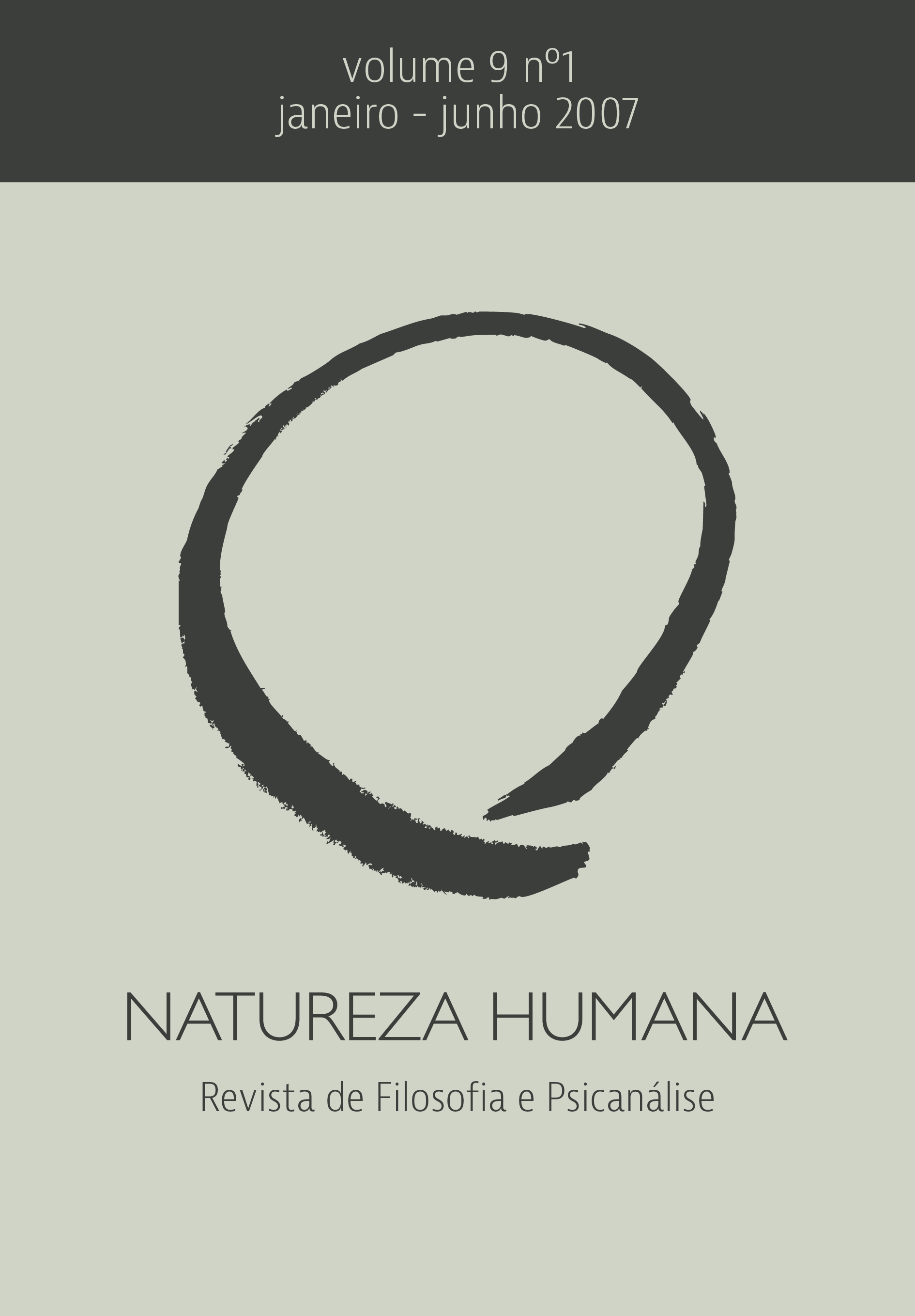The Function of the False-self in Production on the Divan: the case of Maria Callas
DOI:
https://doi.org/10.59539/2175-2834-v9n1-905Keywords:
false self; true self; primary creativity; dissociation; opera; Maria Callas.Abstract
This article exploits some Winnicott’s statements about the function of the false self in processes of artistic creation in scenic arts (theater, opera, etc.) and, to achieve that purpose, it uses Maria Callas’ biographical data. It develops the hypothesis that, when there is some form of communication between the false self and the primary creativity of the true self - even if it is restricted to some domain - artistic creation becomes possible, even when the rest of the personality stays lost, incapable of existing by itself.Downloads
Published
2024-10-02 — Updated on 2007-10-02
How to Cite
Naffah Neto, A. (2007). The Function of the False-self in Production on the Divan: the case of Maria Callas. Human Nature - International Philosophy and Psychology Review, 9(1), 9–28. https://doi.org/10.59539/2175-2834-v9n1-905
Issue
Section
Artigos








